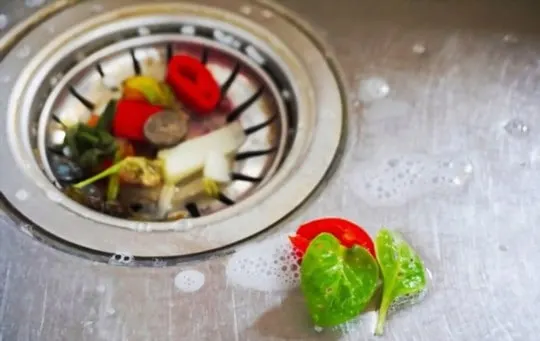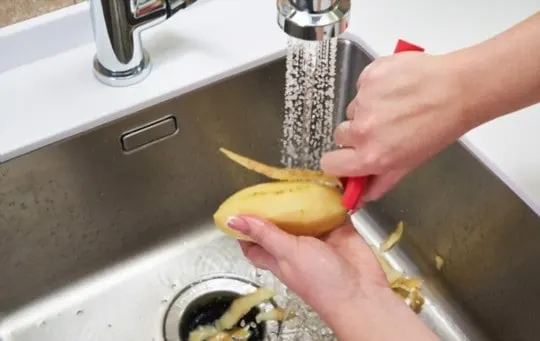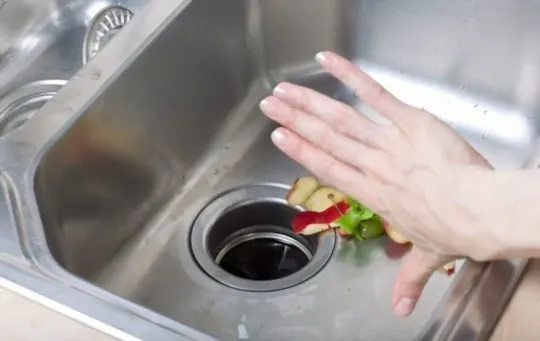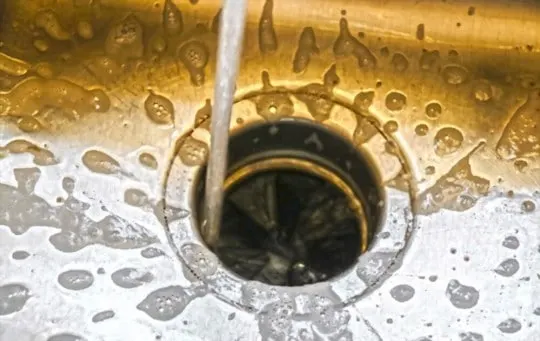Garbage disposal is a great way to make your kitchen more eco-friendly and easy to clean.
It grinds up food waste and sends it to the sewage system or septic tank.
They are very helpful for people who have a lot of food waste because they make cleaning easier by getting rid of the mess in one fell swoop.
There are many different models on the market, but how long do garbage disposals last?
This blog post will give you everything that you need to know about garbage disposals.
What is a Garbage Disposal?

A garbage disposal device uses water and spinning metal blades to grind up household food waste.
The dishes are then washed down the drain with hot soapy water, leaving only clean dishware on your kitchen countertop.
Garbage disposals can also help reduce odors in kitchens by grinding up meat scraps, bones, vegetable peels, and more.
In addition, they can save space inside the home since food waste doesn’t have to be stored in closed containers or trash cans.
Garbage Disposers come in two forms:
- Continuous feed models which require power at all times (electric).
- Batch feed models can be turned on and off when desired.
In some states, garbage disposals are illegal because they cause plumbing issues like clogs or leaks in the pipes that may lead to sink back-ups—though these problems can often be avoided by running a cold water tap while using your disposal.
The most common types of food waste disposed of with this appliance include meats, dairy products, vegetable peels, etc.
How Much Does a Garbage Disposal Cost?

Garbage disposals can cost anywhere from $50 to $400.
That’s a huge range.
But what accounts for the big price difference? Let’s break it down.
Here are some of the factors that affect how much a garbage disposal costs:
If the unit is installed, installation and labor will add quite a bit to your bill.
If you DIY, be prepared with basic plumbing knowledge and tools.
The garbage disposal brand you choose will also affect the cost, but there are great models in every price range.
Consider if a particular model is compatible with your plumbing system and confirm how much power it requires before purchasing.
Budget restraints may be an issue for some people who need to replace their old unit with a new one.
It’s worth considering all available options when shopping around for a replacement device or installing a new team altogether.
Garbage disposals don’t have any real downsides- they keep food scraps from clogging up your sink drain pipes and reduce the amount of kitchen waste that has to go out for curbside pickup.
How to Install Garbage Disposals?

If you are installing a garbage disposal for the first time, follow these steps below to make sure it is installed correctly:
Make sure that there will be enough room under your sink.
If not, consider replacing or enlarging your cabinet space before installing the garbage disposal.
To install a kitchen’s new garbage disposer, switch off the power at the circuit breaker and disconnect water supply lines from the house plumbing system.
Flush out pipes by opening all faucets in the home after removing dishwasher hoses and washing machine drain tubes if applicable.
Inspect waste lines where they attach to the existing drain pipe underneath the sink for leaks using a flashlight with mirror attachment if necessary.
Use plumber’s putty on joints between new fixture junction box and waste pipes to seal.
Attach new fixture junction box from upper cabinet area and the drain pipe below it with screws or clamps according to manufacturer’s instructions.
Voila.
Your garbage disposal is now installed and ready to go.
How Long Do Garbage Disposals Last?

Garbage disposal units are a common appliance in kitchens today.
They make it much easier and less time-consuming to clean up after meals and help reduce the amount of garbage that goes into landfills.
However, these appliances do not last forever, and they will eventually need to be replaced.
The average lifespan of a garbage disposal unit is between six and ten years, but this can vary depending on how often you use the appliance.
For instance, if you don’t mind dirty dishes piling up or food particles being left behind after every meal, your garbage disposal might get overloaded with waste over time, which will dramatically shorten its lifespan.
If it’s been more than ten years since your kitchen has had a new one installed, then now may be the perfect time for an upgrade.
Signs of a Failing Garbage Disposal

So you’re adding a new garbage disposal to your kitchen, but you don’t want it to fail.
Here are some of the signs that may indicate that you need to get a replacement:
- You hear loud banging sounds when running water in the sink.
- Your drain is slow or backed up and won’t run at all.
- The sound of rushing air from under the sink suggests gas escape.
- There’s a foul smell coming from your sink area.
- Your garbage disposal is cracked or broken.
- The drain is slow or backed up and won’t run at all – there may be an obstruction blocking it, so it can’t move food particles to the sewer system for processing.
- Water leaks from the bottom of your sink, near where the garbage disposal is located.
If any sign points to a potential problem, have your garbage disposal inspected by an expert.
It’s best to be proactive and address the issue before it gets out of hand.
Conclusion
Your garbage disposal is an essential component of your kitchen, and you must know how long it lasts.
Suppose there are any signs of damage, such as leaky seals or anything loose inside the unit.
In that case, we recommend having a professional come out for service before it becomes too dangerous.
The best way to determine if your garbage disposal needs servicing is by checking on its soundness with some DIY tests like running ice cubes through the blades or boiling water down in the drainpipe.
By following these steps periodically, you can make sure that your food waste disposer lasts up to 10 years.
